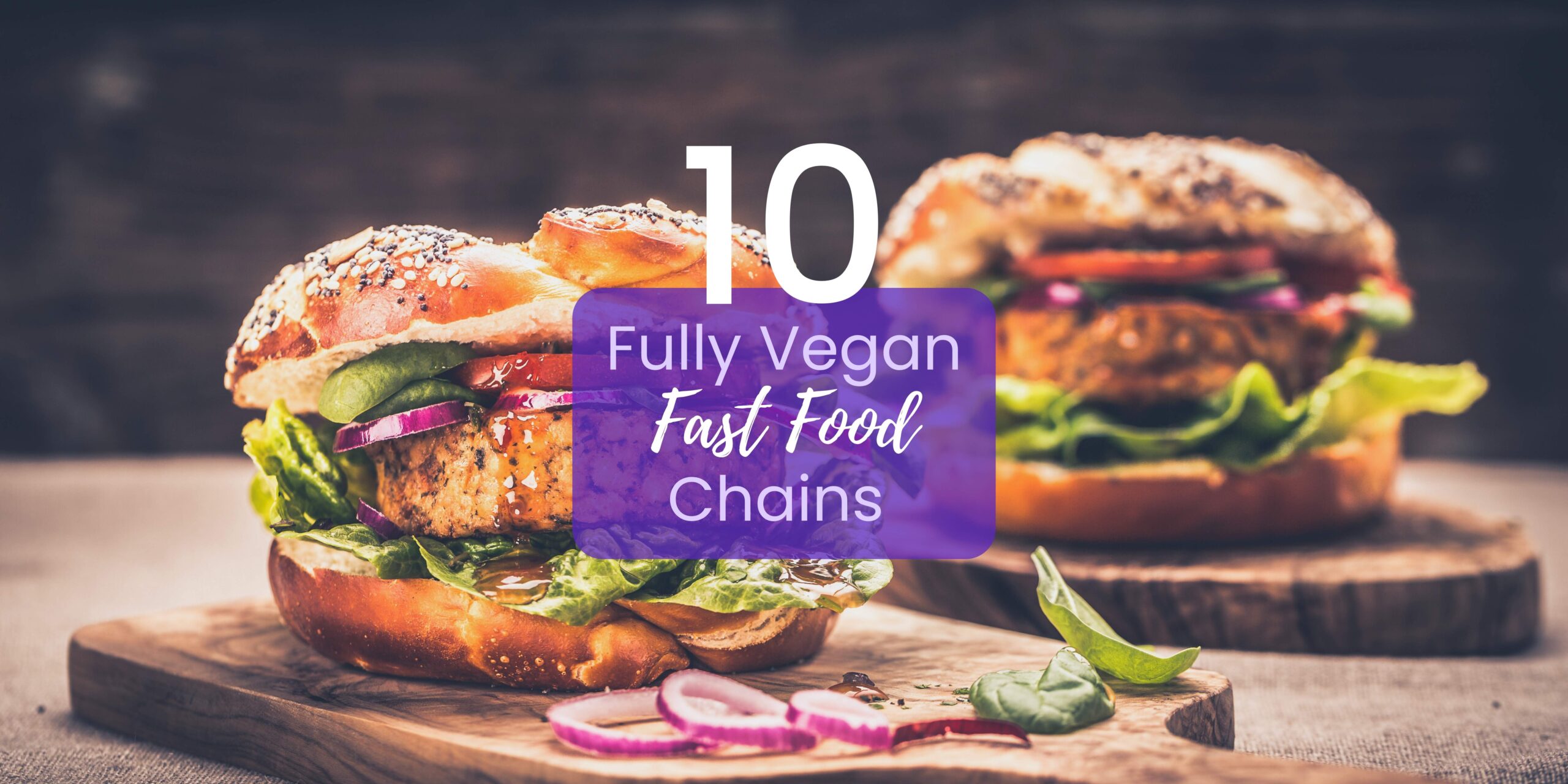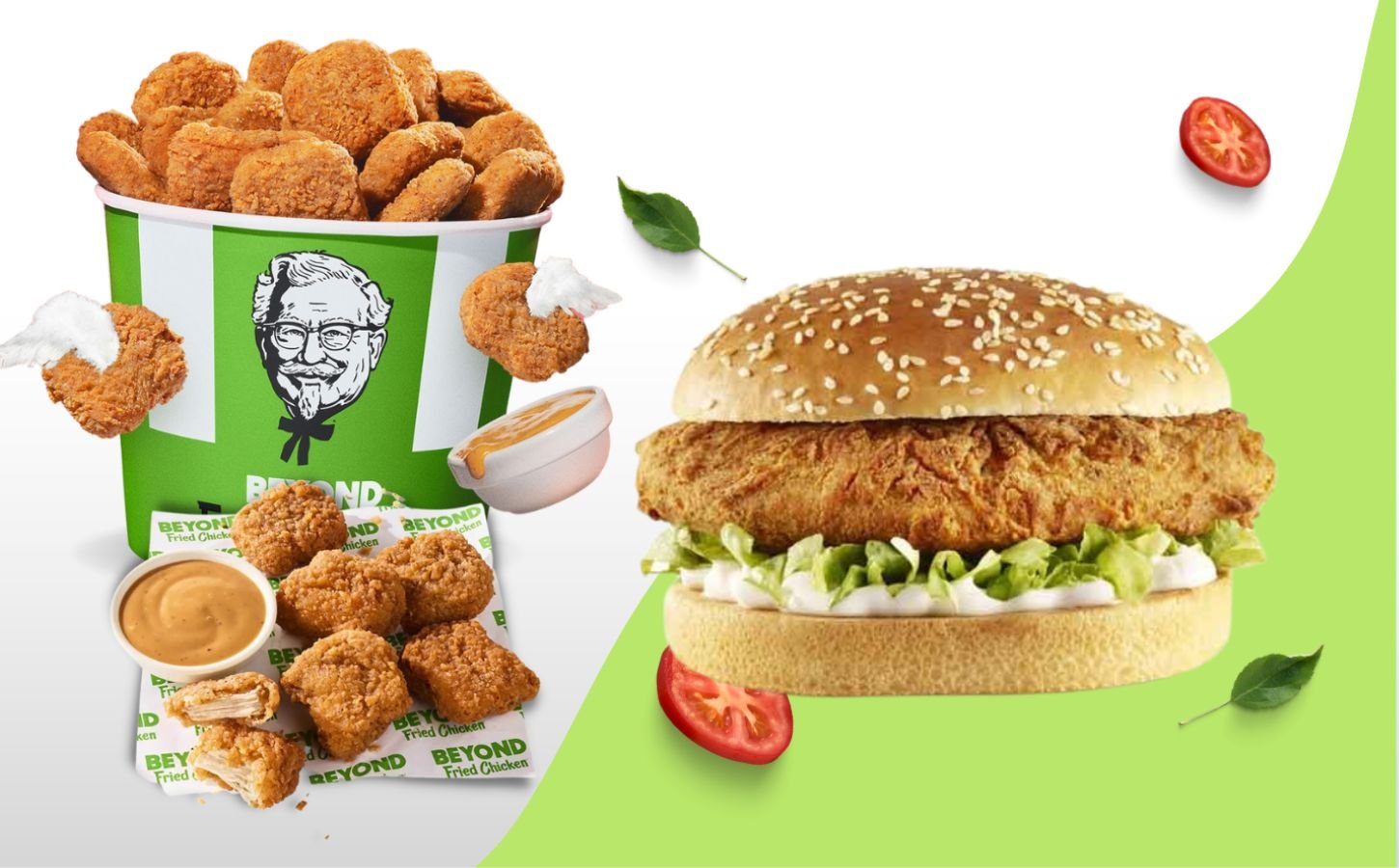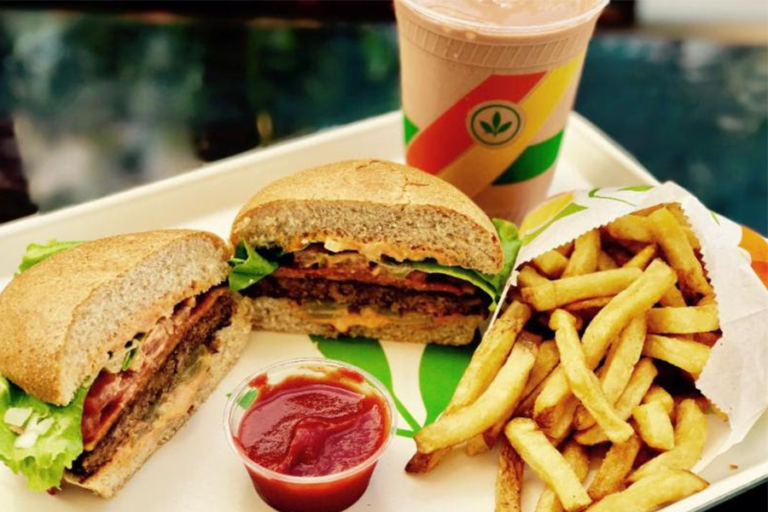Veggie Fast Food Leader: Why Taco Bell Dominates (Rankings!)
Craving a quick, meat-free meal on the go? The fast-food landscape is rapidly evolving, and one chain stands head and shoulders above the rest when it comes to vegetarian options. But who is leading the charge in the world of plant-based fast food?
The demand for vegetarian and vegan choices is surging, driven by health concerns, environmental awareness, and ethical considerations. Fast-food giants are taking notice, and those who adapt are reaping the rewards. Once upon a time, finding a decent vegetarian meal at a drive-thru was akin to searching for a unicorn. Now, options are expanding, menus are diversifying, and the competition is heating up. Its no longer enough to simply offer a token veggie burger; customers want variety, flavor, and, dare we say, even nutrition. This shift is not just a fleeting trend; it represents a fundamental change in consumer preferences.
| Category | Information |
|---|---|
| Company | Taco Bell |
| Vegetarian Options | Over 15 different vegetarian options |
| Vegetarian Sales (2022) | Over 23% of total products sold |
| Global Presence | Thousands of locations in over two dozen countries |
| Healthiest Vegetarian Options | Veggie Power Bowl, Fiesta Veggie Burrito |
| Reference Website | Taco Bell Official Website |
Let's dive into the realm of rankings and discover which fast-food chains are truly committed to serving up the most satisfying and innovative veggie options. It's a battle for the hearts (and stomachs) of vegetarian and flexitarian customers, and the stakes are higher than ever.
The answer, unequivocally, is Taco Bell. Taco Bell has not only embraced the vegetarian movement but has also positioned itself as a frontrunner in catering to plant-based diets. Boasting over 15 distinct vegetarian options, Taco Bell significantly surpasses its competitors in providing a diverse and appealing meat-free menu. From customizable burritos and bowls to dedicated vegetarian sections on their menu, Taco Bell has made it incredibly easy for vegetarians to find something satisfying and delicious. In 2022, vegetarian items accounted for more than 23% of the chain's total sales, a testament to their commitment and success in this market segment. With thousands of locations spanning over two dozen countries, Taco Bell's influence on the global fast-food scene is undeniable.
What makes Taco Bell so successful in the vegetarian arena? Several factors contribute to their dominance. First, their menu is highly customizable, allowing customers to easily swap out meat for beans or other vegetarian alternatives. Second, they have actively marketed their vegetarian options, making them visible and appealing to a broad audience. Third, they continuously innovate and introduce new vegetarian items, keeping their menu fresh and exciting. Finally, their affordability and accessibility make them a popular choice for budget-conscious consumers seeking a quick and convenient vegetarian meal.
While Taco Bell currently holds the crown, other fast-food chains are stepping up their game in the vegetarian market. McDonald's, KFC, and Burger King, the industry's heavyweights, are all making efforts to expand their vegetarian offerings, driven by the increasing demand and potential for growth. These companies are experimenting with plant-based meats, veggie burgers, and other innovative menu items in an attempt to capture a larger share of the vegetarian market. The competition is fierce, and the race to offer the best and most diverse vegetarian options is only just beginning.
- Search Frustration Tips For No Results Found Issues
- Fix No Results Found Check Spelling Amp Try Again
McDonald's, a global leader renowned for its branding prowess and extensive menu, has begun to incorporate more vegetarian options into its international markets. While their U.S. offerings may still be limited, McDonald's has seen success with vegetarian items like the McAloo Tikki burger in India and various veggie wraps and salads in Europe. Their strategic focus on global promotion and adapting to local tastes has allowed them to maintain brand integrity while catering to diverse dietary preferences.
Burger King, known for its flame-broiled burgers, has also entered the vegetarian fray with the Impossible Whopper, a plant-based version of their signature burger. The Impossible Whopper has been a resounding success, attracting both vegetarian and meat-eating customers alike. This demonstrates that even traditionally meat-centric fast-food chains can successfully cater to the vegetarian market with innovative and well-executed menu items.
KFC, famous for its fried chicken, faces a greater challenge in appealing to vegetarians. However, even KFC has begun to experiment with plant-based chicken alternatives and vegetarian sides. While their vegetarian options may still be limited, their willingness to explore and adapt to changing consumer preferences is a sign of the times.
The rise of vegan fast-food chains is another significant trend reshaping the industry. These specialized restaurants, such as Plant Power Fast Food and Veggie Grill, offer entirely plant-based menus, catering to the growing vegan population and attracting health-conscious consumers. Once considered a rare novelty, vegan fast-food chains are rapidly gaining popularity and becoming a mainstream trend across the U.S. and Canada.
Hungry Jack's, the Australian counterpart to Burger King, is also making significant strides in its marketing strategy for 2024, aiming to enhance customer experiences and drive product innovation. This includes exploring new vegetarian and vegan options to appeal to a broader customer base.
The fast-food industry is a highly competitive market, with major players constantly striving to differentiate their offerings and attract customers. Vegetarian options are no longer a niche market; they are a mainstream demand, and fast-food chains that fail to adapt risk falling behind. The key to success in the vegetarian market lies in offering a diverse range of flavorful, affordable, and convenient options that appeal to a broad audience.
Beyond the big players, smaller regional chains are also contributing to the vegetarian fast-food revolution. These companies often focus on local ingredients, sustainable practices, and innovative menu items, catering to a more niche and health-conscious customer base. Their success demonstrates that there is a growing demand for healthier and more ethical fast-food options.
The rise of vegetarian and vegan options in fast food is not just a trend; it's a reflection of a fundamental shift in consumer attitudes and values. People are increasingly concerned about their health, the environment, and animal welfare, and they are demanding more ethical and sustainable food choices. Fast-food chains that respond to these demands will be the ones that thrive in the long run.
The impact of social media and online reviews cannot be overstated. Customers are now more informed and empowered than ever before, and they are quick to share their experiences, both positive and negative, online. Fast-food chains must pay close attention to customer feedback and adapt their menus and practices accordingly. A single viral review can make or break a new menu item, so it's crucial to get it right.
Looking ahead, the future of vegetarian fast food is bright. We can expect to see even more innovation in plant-based meats, more diverse and flavorful vegetarian options, and a greater emphasis on health and sustainability. Fast-food chains will continue to compete for the vegetarian market, and the winners will be those who can offer the best combination of taste, convenience, affordability, and ethical values.
For those seeking a healthier vegetarian option at Taco Bell, the Veggie Power Bowl stands out as a top choice. It's closely followed by the Fiesta Veggie Burrito. Both options provide a satisfying meal with a reasonable calorie count, ranging from 400 to 500 calories, and offer a good source of protein, approximately 13 to 14 grams. They are packed with fresh ingredients like black beans, tomatoes, onions, and guacamole, providing a flavorful and nutritious meal.
The evolution of the fast-food industry is a testament to the power of consumer demand and the ability of businesses to adapt to changing trends. Vegetarian options are no longer an afterthought; they are a crucial part of the menu, and fast-food chains that embrace this change will be the ones that succeed in the future. The competition is fierce, the stakes are high, and the future of fast food is plant-based.
Ultimately, the success of Taco Bell and other chains in the vegetarian market highlights the importance of listening to consumers, innovating with new menu items, and embracing the growing demand for plant-based options. As more and more people adopt vegetarian and vegan lifestyles, the fast-food industry will continue to evolve, offering a wider range of delicious and convenient meat-free meals.
In conclusion, while many fast-food chains are making strides in offering vegetarian options, Taco Bell currently leads the way with its extensive menu, customizable options, and commitment to catering to plant-based diets. As the demand for vegetarian food continues to grow, we can expect to see even more innovation and competition in this exciting and rapidly evolving market.
Driven by a vision for conscious consumption, consumers are increasingly seeking out brands that align with their values. This trend is particularly evident in the food industry, where concerns about health, sustainability, and ethical sourcing are driving demand for vegetarian and vegan options. Fast-food chains that embrace this vision and prioritize conscious consumption will be well-positioned to attract and retain customers in the years to come.
The influence of celebrity endorsements and partnerships is also playing a significant role in shaping the fast-food landscape. When popular figures promote vegetarian or vegan options, it can have a powerful impact on consumer perception and demand. Fast-food chains are increasingly leveraging these partnerships to reach new audiences and promote their plant-based offerings.
Another key trend is the increasing availability of plant-based meat alternatives. Companies like Beyond Meat and Impossible Foods have revolutionized the food industry with their realistic and delicious plant-based burgers and other meat substitutes. These products are now widely available in fast-food restaurants, making it easier than ever for vegetarians and vegans to enjoy classic fast-food meals without compromising their dietary choices.
The development of new cooking techniques and technologies is also contributing to the growth of vegetarian fast food. For example, air frying and other methods of preparing food with less oil are becoming increasingly popular, offering healthier and more appealing options for health-conscious consumers. Fast-food chains are constantly experimenting with new technologies to improve the taste, texture, and nutritional value of their vegetarian offerings.
The regulatory environment is also playing a role in shaping the fast-food industry. Governments around the world are increasingly implementing policies to promote healthier eating and reduce the environmental impact of food production. These policies can incentivize fast-food chains to offer more vegetarian and vegan options, as well as to adopt more sustainable practices.
The rise of delivery services like Uber Eats and DoorDash has also transformed the fast-food landscape. These services make it easier than ever for customers to order vegetarian and vegan meals from their favorite restaurants and have them delivered straight to their door. This convenience is driving demand for vegetarian fast food and creating new opportunities for fast-food chains to reach a wider audience.
The increasing awareness of food allergies and intolerances is also influencing the fast-food industry. Many fast-food chains are now offering gluten-free, dairy-free, and other allergen-friendly options to cater to customers with specific dietary needs. This is particularly important for vegetarians and vegans, who may have additional dietary restrictions.
The use of data analytics and artificial intelligence is also helping fast-food chains to better understand their customers and tailor their menus to meet their needs. By analyzing data on customer preferences, purchasing patterns, and online reviews, fast-food chains can identify trends and develop new vegetarian and vegan options that are likely to be popular.
The importance of transparency and traceability is also growing. Consumers are increasingly demanding to know where their food comes from and how it is produced. Fast-food chains that are transparent about their sourcing practices and can provide traceability information will be better positioned to build trust with their customers.
The collaboration between fast-food chains and non-profit organizations is also becoming more common. These partnerships can help to promote vegetarian and vegan diets, raise awareness about food sustainability, and support local communities. By working together, fast-food chains and non-profit organizations can make a positive impact on the world.
The integration of technology into the ordering and payment process is also transforming the fast-food experience. Mobile apps, online ordering systems, and contactless payment options are making it easier and more convenient for customers to order vegetarian and vegan meals. This technology is also helping fast-food chains to streamline their operations and reduce costs.
The focus on creating a positive and inclusive work environment is also becoming more important. Fast-food chains that prioritize employee well-being and offer opportunities for growth and development will be better positioned to attract and retain talented staff. This is particularly important in the competitive fast-food industry, where employee turnover rates are often high.
The commitment to continuous improvement and innovation is essential for success in the fast-food industry. Fast-food chains that are constantly experimenting with new menu items, technologies, and business practices will be better positioned to adapt to changing consumer preferences and maintain a competitive edge.
The understanding that vegetarian and vegan diets are not just about restricting meat consumption, but also about embracing a healthier and more sustainable lifestyle, is crucial. Fast-food chains that recognize this and offer a wide range of nutritious and delicious plant-based options will be the ones that thrive in the long run.
Finally, the recognition that the fast-food industry has a responsibility to contribute to a more sustainable and equitable food system is essential. Fast-food chains that are committed to reducing their environmental impact, supporting local farmers, and promoting fair labor practices will be better positioned to build a positive brand image and attract socially conscious consumers. The future of fast food is not just about speed and convenience; it's about creating a better world, one meal at a time.
Article Recommendations
- Search Tips No Results Check Spelling Try Again
- Kristi Noem Height Net Worth Biography The Truth Revealed



Detail Author:
- Name : Jaclyn Hamill
- Username : lucienne37
- Email : powlowski.allison@lehner.com
- Birthdate : 1988-08-16
- Address : 5253 Robel Pines Sanfordborough, KY 67170-2118
- Phone : +14457174732
- Company : Legros, Weissnat and Koepp
- Job : Human Resource Manager
- Bio : Mollitia voluptatem alias quia voluptatibus. Et aperiam eaque tempora fugiat optio est. Dolorum voluptates dolorum dicta est quibusdam illum rerum. Sit pariatur velit eos in vel.
Socials
twitter:
- url : https://twitter.com/block1977
- username : block1977
- bio : Non quo assumenda eos corporis non suscipit quisquam hic. Est ea porro et qui non quas nesciunt occaecati. Qui totam ullam voluptatem et est sint in.
- followers : 6888
- following : 996
instagram:
- url : https://instagram.com/block1978
- username : block1978
- bio : Amet perferendis eveniet quibusdam blanditiis est. Quaerat voluptatum facilis maiores eos.
- followers : 6633
- following : 559
tiktok:
- url : https://tiktok.com/@block1994
- username : block1994
- bio : Voluptatem magnam dignissimos illum necessitatibus qui cum et quisquam.
- followers : 6037
- following : 1310